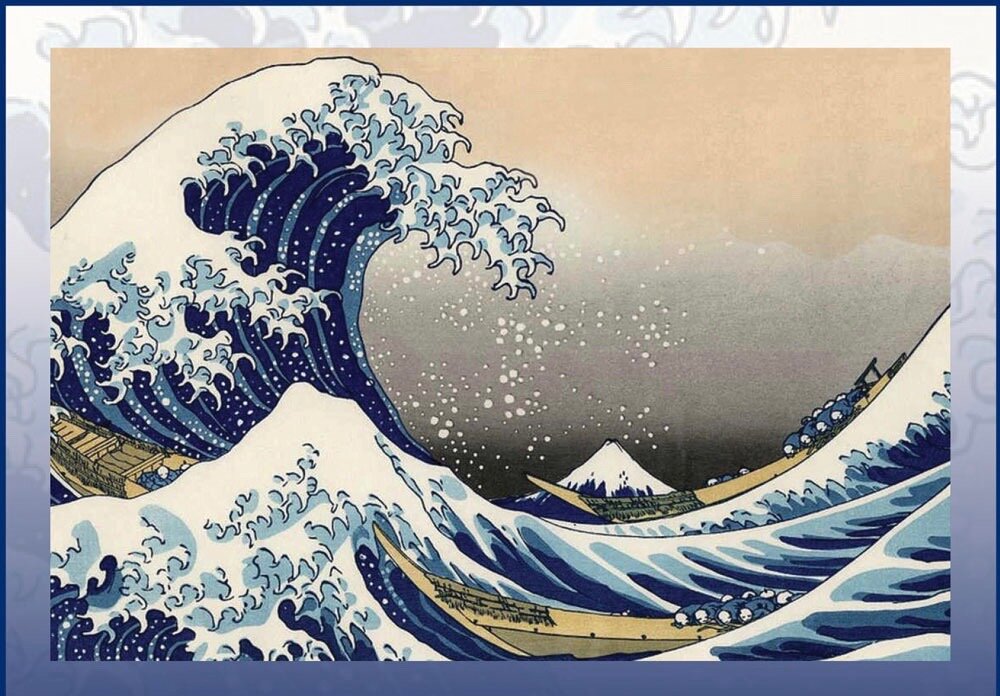Last week I mentioned collective trauma in this space and in the brief teaching during the meditation hour. One brave individual to whom I am most grateful asked what did this mean - this collective trauma.
To bring it back to language with which we are more familiar, "collective reactivity” - "collective trauma” - is becoming more widely recognized and acknowledged in the meditation and mindfulness world. Earlier practice and our experiences of the world were held in a more individual way. We examined our individual experiences of our five senses and our minds without much reference to what others were experiencing except to say that we often had similar experiences. We might see a sunset and be compelled to stop and stare, hear a bird and delight, hear a jack hammer and be annoyed or stressed. We might feel restless on the cushion and work with our own restlessness reassured that others also sometimes felt restless. It was the way of the mind. Watching our mind jump around was such a common experience that it was given the name “monkey mind” and considered an achievement to become aware of it.
But it was still our individual experience world that we were examining, reacting to, learning from, practicing with.
The pandemic changed all that. We all became much more anxious about this disease that was affecting everybody. No class of people, nation, neighborhood, socioeconomic plane was safe from the scourge. Doctors and nurses weren’t safe, couldn’t go home for fear of infecting their families. Even government officials were getting it.
Dr. Judson Brewer, author of “Unwinding Anxiety” and researcher into the brain and mindfulness, gave 5 minute daily talks on unwinding that anxiety. In one of his more illuminative talks, he said our anxiety was contagious. Just as we could sneeze on somebody and give them a cold, we could “sneeze” our anxiety on to others and infect them with our anxiety. I witnessed this first hand a number of times before I caught on - as I would anxiously recount statistics or hospital news to a friend and see them become more anxious. We were all so anxious that we would begin to boil over with a little prompting from somebody else’s anxiety “sneeze.”
Thank heaven for the burgeoning of on-line practices groups, retreats, talks. This very group formed in July of 2020 out of our common need to come together for support, solace, practice, meditation, and calming.
I listened to a talk today by Heather Sundberg whom I mentioned last week in connection with the Six Practices for restoring resiliency in the face of collective reactivity.
These are mindfulness and somatic (body centered) practices that were developed by her teacher and colleague Manuela Mischke-Reeds and others at the Hacomi Institute. Hacomi is a an alternative therapy that uses mindfulness and somatic practices to restore balance to people suffering from collective trauma, PTSD, and other more elevated forms of dis-ease.
This is Manuela Mischke-Reeds definition of collective reactivity - collective trauma:
“Collective reactivity or collective trauma – is an experience which affects the psychological health of the whole of the society. And it tears apart the previous fabric of what we know to be true and real. These experiences happen over time and are ongoing. They can create a crisis of meaning. They can also influence large scale change of societal norms or even collective identity.”
On the short list for situations that produce collective trauma or reactivity are wars, natural disasters, pandemic, collective unrest, and climate change. We currently are experiencing the overlapping of all five of these conditions with wars in Ukraine and Israel-Gaza, wild fires, atmospheric rivers, huge storms, the Covid pandemic, the polarization of our politics here and around the world, and the escalation of global warming.
As the meditation path progresses, we may have cycles in our practice of this tearing apart of the previous fabric of what we know to be true or real. This is one of the many definitions of insight, direct experience. So we have some experience building that resiliency.
So it may become increasingly important for us to learn to recognize and acknowledge for ourselves how we are affected by collective reactivity and to practice ways of calming ourselves so that we can bring our best selves to bear when confronted with these increasingly common anxiety producing events and so that we can share these practices with others and contribute to increasing collective resiliency.

